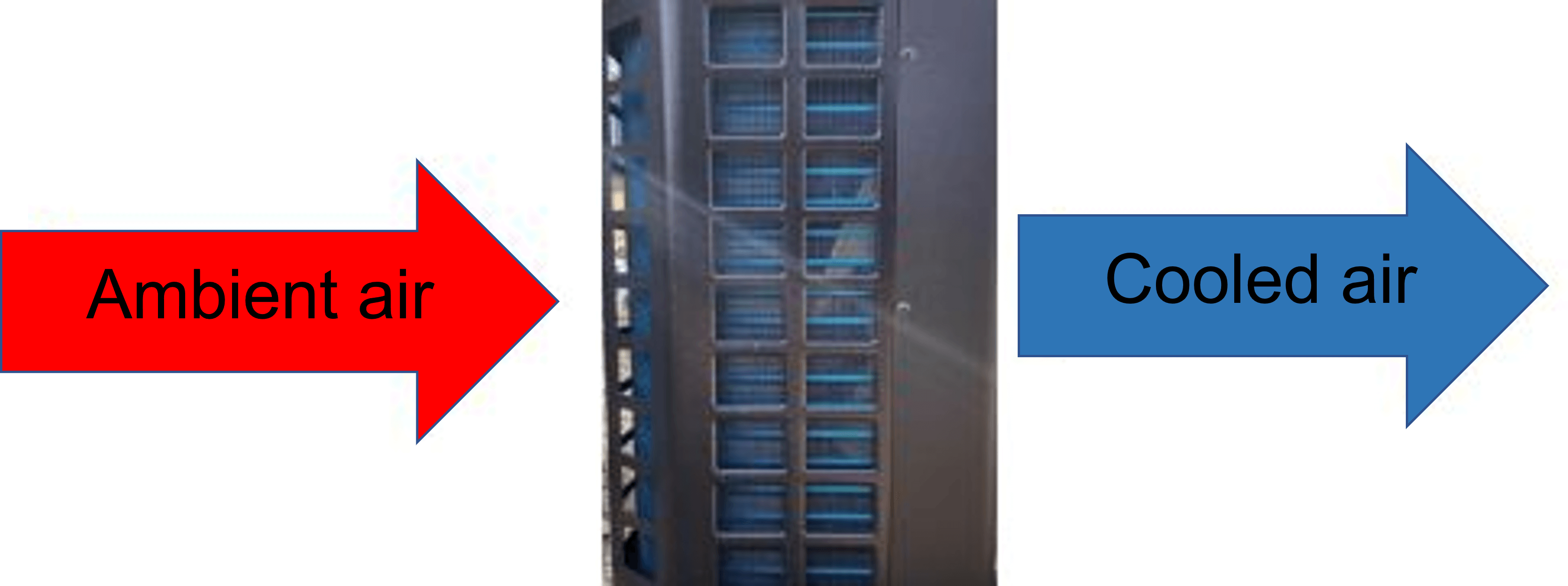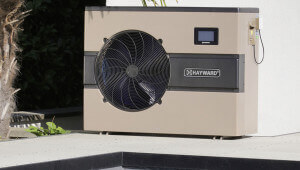My heat pump is "losing water".
You have observed that your pool heat pump is "losing water". Are you wondering if this is a leak? In many cases, this presence of water is caused by condensation. We use the term condensate.
Condensate is a natural physical phenomenon caused by sudden cooling of the air on a cold surface. When it comes into contact with this cold surface the water in the air, in the form of vapour, changes phase from vapour to liquid.
The same thing occurs when you take a bottle out of the fridge in the middle of summer; on coming into contact with the surrounding air, many water drops form on the outside of the bottle and run down the sides, leaving a water mark on the table.
In the case of the heat pump for your pool, when in heating mode the cold surface is the finned exchanger.
When the fan and compressor are operating, hot air is sucked in and cooled when it comes into contact with this exchanger, allowing the calories in the air to be recovered. This exchange therefore inevitably causes condensation of the water present in the air.
We should also mention that the warmer the ambient air, the more water it can contain:
- 1 kg of air at - 9°C and 70% humidity will contain 1.5gr of water.
- 1 kg of air at + 15°C and 70% humidity will contain 7.5gr of water.
- 1 kg of air at+ 30°C and 70% humidity will contain 19.5gr of water.
So the hotter it is outside, the more condensate your pool’s heat pump will generate.
In certain cases, particularly in winter, the physical phenomenon of condensation will change this water vapour into a solid state (crystallisation), which will lead to frost forming on the finned exchanger.
Condensate is therefore in fact a sign that your heat pump is working correctly.
You can easily redirect the flow using a drainage pipe, bearing in mind that this is considered to be pure water (therefore non-toxic) and can be drained directly into the ground.


